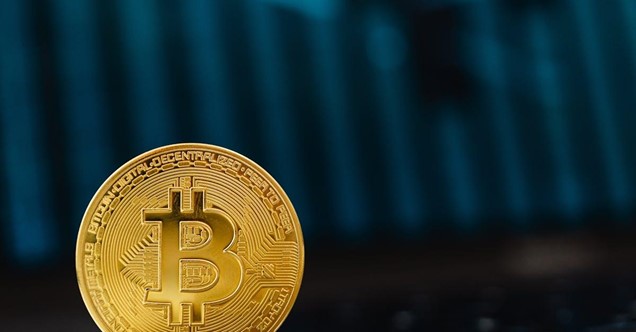Decentralized Gaming Economies: How Crypto Is Reinventing Online Casinos
Sponsored Content | Wed Nov 12 2025

As we jump into the world of online gaming, it becomes clear that a transformation is underway, one driven by decentralized technologies and cryptocurrency. Traditional online casinos have operated on centralized platforms where trust hinges on a third party.
But, with the advent of decentralized gaming economies, we are witnessing a paradigm shift that promises not only to enhance the user experience but also to redefine the rules of engagement in online gambling. For instance, the growing popularity of platforms offering a no kyc no deposit bonus casino experience reflects a broader demand for privacy-focused and user-empowered gaming environments.
With this foundational understanding, let's explore the intriguing mechanics of decentralized gaming economies and how they are reshaping the future of online casinos.
Understanding Decentralized Gaming Economies
Decentralized gaming economies are built around blockchain technology, enabling players to engage directly in games without the need for intermediaries. This shift is crucial because it means that the control of game assets, such as digital tokens or NFTs, is in the hands of the users rather than a central authority. Each player's virtual assets are secured on the blockchain, ensuring transparency and authenticity.
In this model, players can trade, use, or sell their in-game items freely within the ecosystem, promoting an economy where value is fluid and community-driven. Also, decentralized platforms often enable developers to create and integrate their games without the constraints typically imposed by traditional casinos. This fosters innovation, as even independent developers can bring their ideas to life without hefty fees or regulatory bottlenecks. Eventually, decentralized gaming economies empower players and foster a more equitable gaming landscape.
The Role of Cryptocurrency in Online Casinos
Cryptocurrency serves as the backbone of decentralized gaming economies, providing the essential liquidity and security needed for online transactions. Many online casinos have started to accept cryptocurrencies, enabling players to deposit and withdraw funds with significantly lower fees compared to traditional payment methods. Also, crypto transactions ensure anonymity and security, allowing players to gamble without revealing sensitive information.
Tokens and coins like Ethereum and Bitcoin enable seamless cross-border transactions, attracting a global audience. By utilizing smart contracts, self-executing contracts with the terms of the agreement directly written into code, decentralized casinos can automate crucial processes, such as payouts and bonuses, ensuring a fair experience for all parties involved. In essence, cryptocurrency fuels the decentralized economy, laying the foundation for a more accessible and transparent gaming environment.
Benefits of Decentralization in Gaming
The decentralization of online casinos brings a myriad of benefits, enhancing user experience and operational transparency. Here are some key advantages we can look forward to:
- Transparency: Every transaction recorded on the blockchain is immutable and publicly accessible, enabling users to audit gameplay and payouts independently.
- Fairness: Decentralized casinos can carry out provably fair algorithms, assuring players that their chances of winning are not manipulated. Players can verify the fairness of the outcomes for themselves.
- Ownership: Players genuinely own their in-game assets, which they can trade or sell on various marketplaces, increasing their potential returns from gaming activities.
- Global Reach: With cryptocurrency, anyone with internet access can participate, regardless of geographical boundaries or banking limitations, so expanding the audience for online casinos.
- Lower Fees: By eliminating the need for intermediaries, decentralized casinos can lower transaction fees, passing on savings to players and increasing overall engagement.
Challenges Facing Decentralized Online Casinos

Photo by Michal Parzuchowski on Unsplash
While the benefits are compelling, decentralized online casinos face several challenges that we must address for widespread adoption:
- Regulatory Uncertainty: The rise of decentralized gaming has outpaced regulatory efforts, leading to a lack of clarity about legal frameworks in various jurisdictions. This uncertainty can deter players and investors.
- Security Risks: Although blockchain offers enhanced security, decentralized platforms can still be vulnerable to coding errors, bugs, and hacks. Ensuring the safety of player assets is paramount.
- User Experience: While tech-savvy users might thrive in a decentralized ecosystem, the average player may find the tools and interfaces daunting. Simplifying user experiences will be crucial for broader adoption.
- Scalability Issues: Many blockchain networks struggle with scalability, leading to slower transaction speeds during peak times. Improvements in technology are necessary for seamless gameplay.
- Market Volatility: The value of cryptocurrencies can fluctuate wildly, impacting the economy within decentralized platforms. This volatility can pose risks to players and operators alike.
Future Trends in Decentralized Gaming Economies
As we look forward, several trends are set to shape the future of decentralized gaming economies:
- Enhanced Integration: We expect deeper integration of decentralized platforms with existing gaming ecosystems, allowing players to transfer assets between games. This interplay can create a more connected gaming environment.
- Increased Regulation: As more users flock to decentralized platforms, we anticipate increasing regulatory clarity. This could potentially legitimize decentralized casinos, attracting traditional players who have hesitated so far.
- Rise of NFTs: Non-fungible tokens (NFTs) are revolutionizing ownership in online gaming by allowing players to truly own unique assets. We foresee their increasing use in decentralized gaming, enhancing the player experience and investment potential.
- Community Governance: Many decentralized platforms are adopting governance models where users can vote on key decisions, introducing a democratic element into game development and operations. This will likely deepen community engagement and loyalty.
- Gamification of Finance: Combining gaming with finance (GameFi) will likely become more integrated, driving investments in decentralized economies through engaging gameplay mechanics. For more insight into this evolution, check out CoinDesk where experts analyze the impact of blockchain technology on various sectors, including gaming.